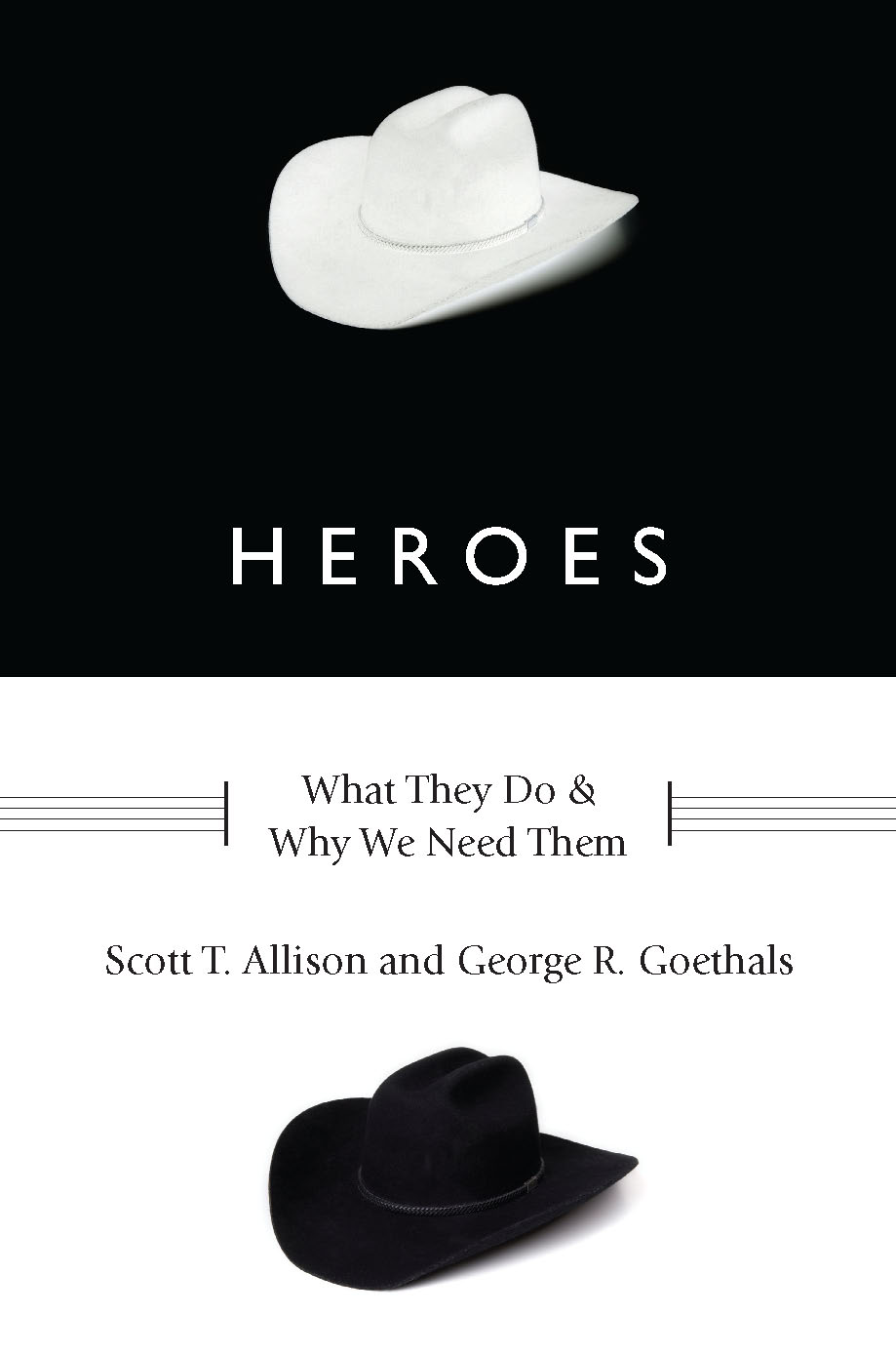 Why do we perceive certain people as heroes? What qualities do we see in them? What must they do to win our admiration? In Heroes: What They Do and Why We Need Them, authors Scott T. Allison and George R. Goethals offer a stimulating tour of the psychology of heroism, shedding light on what heroism and villainy mean to most people and why heroes — both real people and fictional characters — are so vital to our lives.
Why do we perceive certain people as heroes? What qualities do we see in them? What must they do to win our admiration? In Heroes: What They Do and Why We Need Them, authors Scott T. Allison and George R. Goethals offer a stimulating tour of the psychology of heroism, shedding light on what heroism and villainy mean to most people and why heroes — both real people and fictional characters — are so vital to our lives.
Check out the authors’ interview on NPR’s Radio Lab program, in which they discuss their research on underdog heroes.
In their book on Heroes, the authors discusses a broad range of heroes, including Eleanor Roosevelt, the Beatles, Walt Kowalski in Gran Torino, Abraham Lincoln, and explorer Ernest Shackleton, plus villains such as Shakespeare’s Iago. The authors highlight the Great Eight traits of heroes (smart, strong, selfless, caring, charismatic, resilient, reliable, and inspiring) and outline the mental models that we have of how people become heroes, from the underdog who defies great odds (David and Goliath) to the heroes who redeem themselves or overcome adversity. Brimming with psychological insight, Heroes: What They Do and Why We Need Them provides an illuminating look at heroes — and into our own minds as well.
Heroes: What They Do and Why We Need Them, published by Oxford University Press, is now available for purchase.
– – – – – – – – –
Here’s what they’re saying about Heroes: What They Do and Why We Need Them:
“Heroes and villains are outliers on the bell curve of humanity, Good and Evil the basic dialectic of human nature. These fascinating processes are brilliantly illuminated in this well-crafted exposition that takes its readers on a captivating journey.”
– Philip Zimbardo, Professor Emeritus of Psychology, Stanford University, President of the Heroic Imagination Project, and author of The Lucifer Effect and The Time Paradox
* * *
“Who are our heroes, who are our villains and why? Through a skilled interweaving of fascinating examples, relevant research, and crucial conceptual distinctions, Scott Allison and George Goethals answer these questions for our time.” — Howard Gardner, Hobbs Professor of Cognition and Education, Harvard Graduate School of Education
* * *
“Allison and Goethals have done a masterful job leading the reader through the complex labyrinth of leaders and followers, heroes and villains, and even the nature of evil. The book is both erudite and entertaining. The have used familiar heroes from fiction, popular culture, and everyday life to make important points come alive while remaining true to the empirical research literature across many areas. This is a book that may be destined to cross the line from scientific analysis to best seller.” — Martin Chemers, Professor of Psychology, University of California Santa Cruz
* * *
“By conjoining deep insights from psychology, history and the arts, Allison and Goethals have tendered a unique analysis of heroism€”and have succeeded wonderfully.” — Robert B. Cialdini, Regents’ Professor Emeritus of Psychology & Marketing, Arizona State University, and Author of Influence: Science and Practice
* * *
“In this outstanding book, Scott Allison and Al Goethals probe beneath the surface of heroes and heroism. What kinds of  people are recognized as heroes? What motivates them to take actions that most others are unable or unwilling to take? Allison and Goethals answer these questions with a rich analysis that draws from a wide range of scientific and historical sources.”
people are recognized as heroes? What motivates them to take actions that most others are unable or unwilling to take? Allison and Goethals answer these questions with a rich analysis that draws from a wide range of scientific and historical sources.”
— Alice Eagly, Professor of Social Psychology, Northwestern University
* * *
“George Goethals and Scott Allison, two of the world’s preeminent social psychologists, have combined their considerable talents to produce a tour de force analysis of heroes and heroism. This book is a scholarly triumph, a heroic intellectual achievement, and one that will both inform and inspire contemporary debate and understanding of this important but neglected topic.” — Roderick M. Kramer, William R. Kimball Professor of Organizational Behavior, Graduate School of Business, Stanford Business School